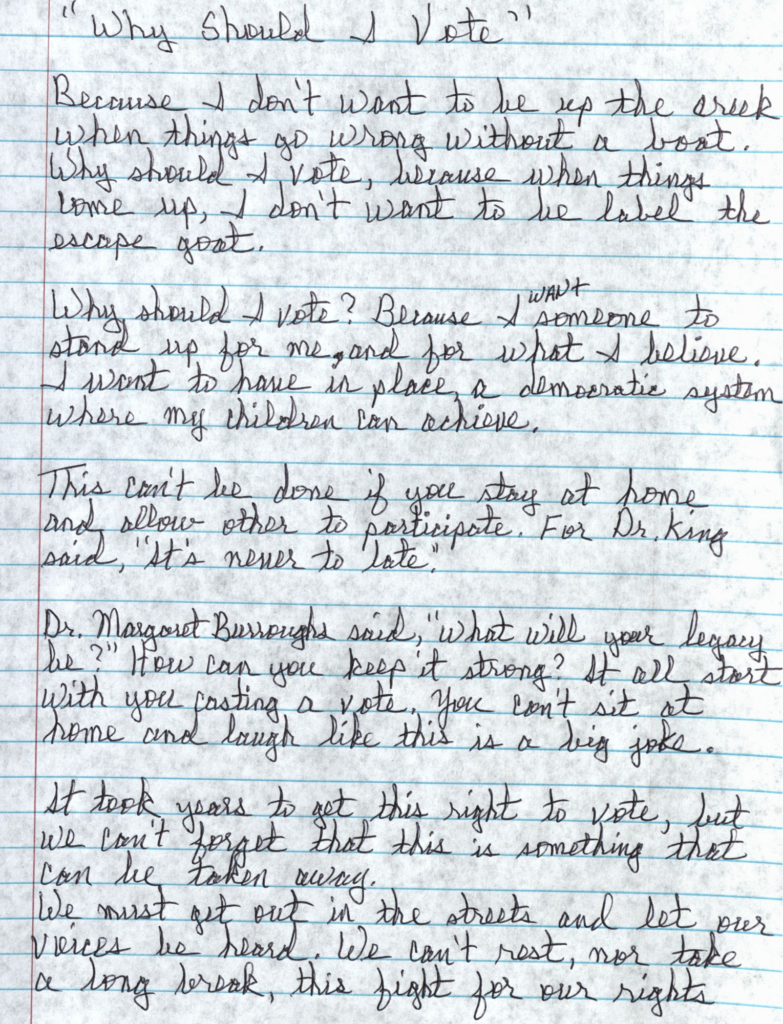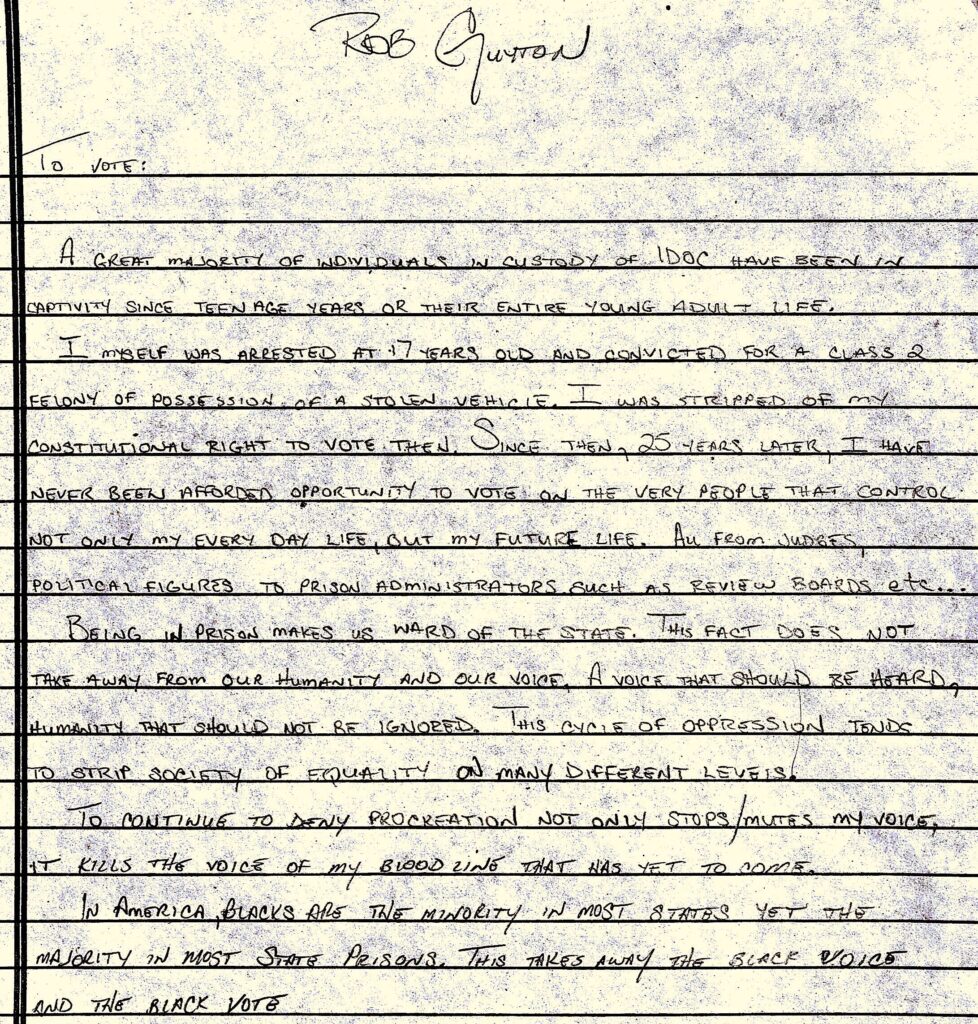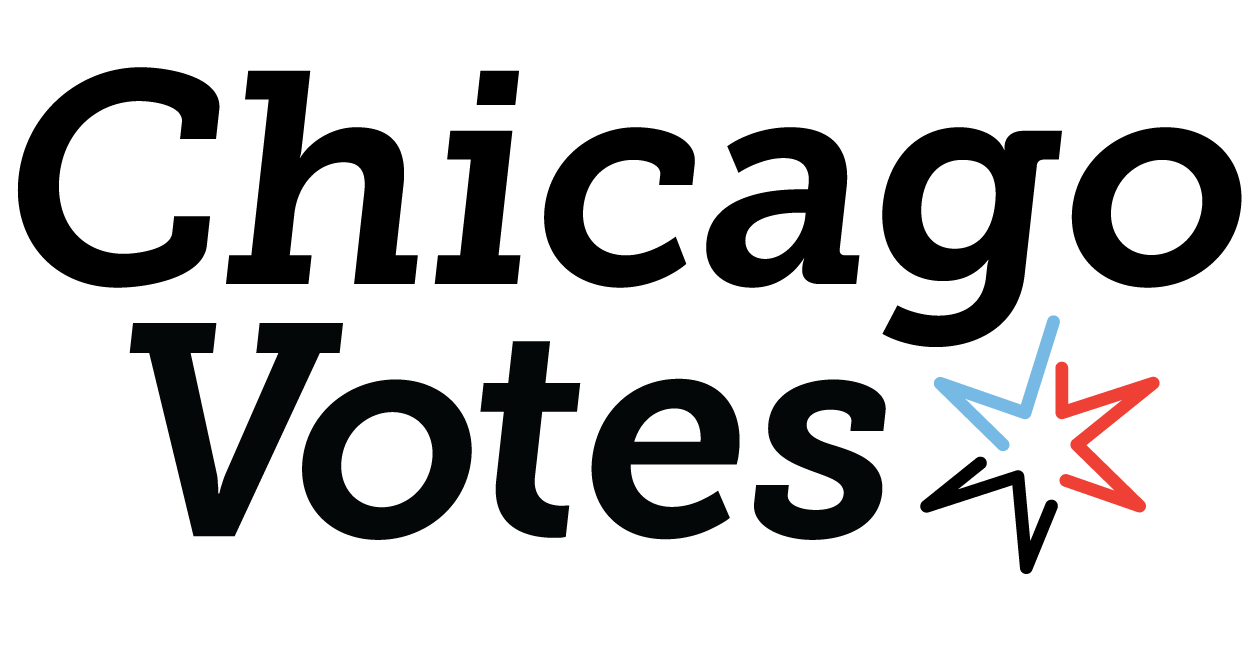In Illinois, the last remaining group of disenfranchised citizens is people serving convictions in prison, contributing to the decades-long neglect of the state’s prisons and the needs of those in custody and overpoliced communities. When people in prison cannot vote, influence policy, or hold elected officials accountable, inhumane prison conditions proliferate.
However, this is not unique to Illinois. Across the country, people in jail and prison are disenfranchised, whether it’s written in statute or de facto inaccessibility. If increasing participation in our democracy is the goal of National Voter Registration Day, it is paramount that we advocate for the expansion of voting rights to people experiencing incarceration.
National Voter Registration Day was first observed in 2012, with more than 5 million voters registered to vote on the holiday to date. Across the country, this day is celebrated through voter registration drives and public education campaigns. But if we aren’t actually engaging and uplifting the voices of our disenfranchised community members, the holiday rings hollow.
William Jones, incarcerated in Stateville Correctional Center, reminds us, “It took years to get this right to vote, but we can’t forget that this is something that can be taken away. We must get out in the streets and let our voices be heard. We can’t rest, nor take a long break; this is a fight for our rights.”

Ahead of National Voter Registration Day, we asked our colleagues in the Stateville C.C. Think Tank to send us letters about the importance of voting and expanding access to people in prison. Here is what they wrote:
“Why Should I Vote” by William Jones

Because I don’t want to be up the creek when things go wrong without a boat. Why should I vote, because when things come up, I don’t want to be label the escape goat.
Why should I vote? Because I want someone to stand up for me, and for what I believe. I want to have in place a democratic system where my children can achieve.
This can’t be done if you stay home and allow others to participate. For Dr. King said, “It’s never too late.”
Dr. Margaret Burroughs said, “What will your legacy be?” How can you keep it strong? It all starts with you casting a vote. You can’t sit at home and laugh like this is a big joke.
It took years to get this right to vote, but we can’t forget that this is something that can be taken away. We must get out in the streets and let our voices be heard. We can’t rest, nor take a long break; this is a fight for our rights.
“To Vote” by Rob Guyton

A great majority of individuals in custody of IDOC have been in captivity since teenage years or their entire young adult life.
I myself was arrested at 17 years old and convicted for a class 2 felony of possession of a stolen vehicle. I was stripped of my constitutional right to vote then. Since then, 25 years later, I have never been afforded opportunity to vote on the very people that control not only my everyday life, but my future life. From judges, political figures to prison administrators such as review boards, etc.
Being in prison makes us wards of the state. This fact does not take away from our humanity and out voice. A voice should be heard, humanity that should not be ignored. This cycle of oppression tends to strip society of equality on many different levels.
To continue to deny procreation not only stops/mutes my voice, it kills the voice of my bloodline that has yet to come.
In America, Blacks are the minority in most states yet the majority in most state prisons. This takes away the Black voice and the Black vote.
Advocating for the expansion of voter access in jail and prison should be a part of your National Voter Registration Day. Get involved with #UnlockCivics and the #VotinginPrison campaign!
